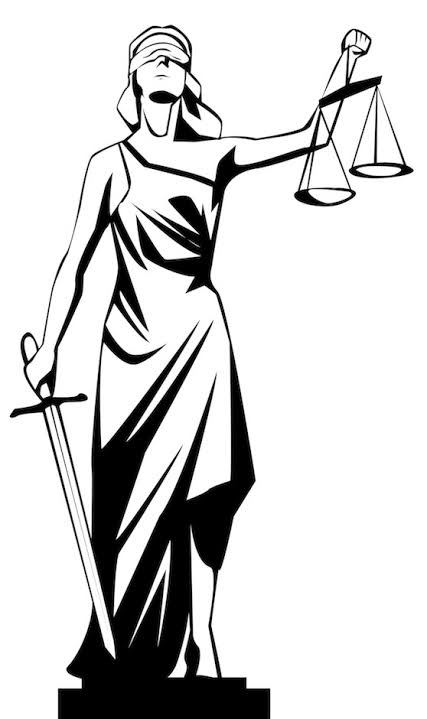Judicial Independence in Nigeria: Challenges and Safeguards in the Current Dispensation
Judicial independence is the bedrock of any democratic society and the linchpin of the rule of law. It assures citizens that justice will be dispensed fairly, impartially, and without fear or favor, regardless of the litigant’s status or the government’s interests. In Nigeria, a nation striving to solidify its democratic institutions, the concept of judicial independence is particularly critical. While significant strides have been made, the Nigerian judiciary continuously grapples with a myriad of challenges that threaten its autonomy, even as various safeguards are designed to protect its integrity in the current dispensation.
What is Judicial Independence?
Judicial independence essentially means that judges are free to decide cases based on the law and facts presented before them, without improper influence from other branches of government (executive or legislature), political parties, private interests, or even public opinion. It encompasses two main aspects:
• Institutional Independence: The judiciary as an arm of government is independent from the executive and legislative branches in its funding, administration, and appointment processes.
• Individual Independence: Individual judges are free from external pressure in their decision-making.
Constitutional and Legal Safeguards for Judicial Independence
Nigeria’s legal framework provides a robust foundation for judicial independence, primarily anchored in the 1999 Constitution of the Federal Republic of Nigeria (as amended):
• Separation of Powers (Sections 4, 5, 6): The Constitution clearly delineates the powers of the Legislature, Executive, and Judiciary, establishing a system of checks and balances designed to prevent the concentration of power and protect judicial autonomy.
• Security of Tenure (Sections 254(3), 271(2), 276(2), 291): Judges hold tenure until a mandatory retirement age (65 or 70 depending on the court), and can only be removed through a rigorous process involving a two-thirds majority of the Senate (for federal judges) and a recommendation from the National Judicial Council (NJC) (Sections 292, 292(2) Constitution). This protects them from arbitrary removal by the executive.
• Financial Autonomy (Section 81(3), 121(3)): The Constitution provides that the remuneration, salaries, and allowances of judicial officers are charged directly on the Consolidated Revenue Fund, meaning they do not require annual appropriation approval from the legislature. This is designed to prevent financial leverage from being used against the judiciary. Furthermore, the 4th Alteration to the Constitution (now Section 121(3) as amended) aims to guarantee the financial autonomy of state judiciaries by directing that funds due to the judiciary should be paid directly to the Heads of Court.
• Appointment Process (Sections 231, 238, 250, 254A, 256, 261, 266, 271, 276, 281): Judicial appointments are made by the President or Governor on the recommendation of the National Judicial Council (NJC) and confirmed by the Senate or State House of Assembly, respectively. The NJC, composed largely of judicial officers, plays a critical role in vetting and recommending candidates, theoretically insulating the process from undue political influence.
• Immunity (Section 295(2)): Judges enjoy a degree of immunity from civil or criminal proceedings for actions taken in the performance of their judicial duties, allowing them to make decisions without fear of personal litigation.
• National Judicial Council (NJC): Established by Section 153(1)(i) of the Constitution and Paragraph 21 of the Third Schedule, the NJC is a crucial body responsible for the appointment, discipline, and removal of judicial officers. Its composition, primarily of judicial officers, is intended to safeguard judicial independence from political interference in these critical areas.
Challenges to Judicial Independence in the Current Dispensation
Despite these constitutional safeguards, the Nigerian judiciary faces persistent challenges:
Financial Dependence and Implementation Gaps:
• State Judiciary Autonomy: While the Constitution mandates financial autonomy for the judiciary, its practical implementation, especially at the state level, remains a significant hurdle. Many state judiciaries still rely on the executive for funds, hindering their ability to carry out basic operations, procure resources, and even pay staff salaries (Premium Times, 2021). The JUSUN (Judiciary Staff Union of Nigeria) strike in 2021 underscored this persistent problem.
• Budgetary Allocations: Even where funds are directly charged, the adequacy of budgetary allocations from the executive remains a concern, impacting infrastructure development, training, and welfare of judicial officers.
Executive Interference and Influence:
• Appointment Process: While the NJC plays a vital role, concerns persist regarding political influence creeping into judicial appointments, particularly at the high court level. Recommendations can sometimes be swayed by political considerations rather than strict merit.
• Disobedience of Court Orders: A recurring challenge is the Executive’s occasional disregard for court orders, particularly those unfavorable to its interests. This undermines the authority and sanctity of the judiciary and the rule of law (Vanguard, 2024).
• “Forum Shopping” and Ex-parte Orders: The practice of “forum shopping” where parties seek out specific judges for favourable ex-parte orders (orders granted without the presence of the other party) can be used by the executive or powerful entities to obtain injunctions that frustrate legitimate processes or undermine rival parties.
• Corruption within the Judiciary: Allegations of corruption and bribery among some judicial officers severely erode public trust and undermine the credibility of the judiciary. Such instances directly compromise the impartiality of judgments and tarnish the image of the entire institution. While the NJC has taken disciplinary actions against erring judges, the perception persists.
• Security Concerns for Judges: Judges handling sensitive cases (e.g., corruption, terrorism, high-profile political disputes) often face threats and security risks, which can subtly or overtly influence their independence (ICPC, 2021, on corruption in the judiciary).
• Public Perception and Media Scrutiny: Intense public and media scrutiny, especially in politically charged cases, can inadvertently put pressure on judges. While transparency is good, sensationalism and misinformation can undermine judicial processes.
• Inadequate Infrastructure and Welfare: Many courts, particularly at lower levels, suffer from dilapidated infrastructure, lack of modern technology, and poor working conditions, which can impact efficiency and the morale of judicial officers. Inadequate welfare can also make judicial officers more susceptible to corrupt overtures.
Safeguards in the Current Dispensation: Strengths and Ongoing Efforts
Despite the challenges, the current dispensation exhibits ongoing efforts and existing strengths that bolster judicial independence:
• The Arbitration and Mediation Act (AMA) 2023: This Act significantly reduces the scope for judicial intervention in arbitral proceedings, strengthening the enforceability of arbitral awards and showing a commitment to judicial restraint in commercial disputes (Tope Adebayo LP).
• Strong NJC Disciplinary Actions: The National Judicial Council continues to play a vital role in disciplining errant judges, recommending their suspension or removal. These actions, when swift and decisive, send a strong message against judicial misconduct.
• Increased Advocacy for Financial Autonomy: Civil society organizations, the Nigerian Bar Association (NBA), and even the judiciary itself continue to advocate fiercely for the full implementation of judicial financial autonomy, recognizing it as key to genuine independence.
• Technology Adoption: The push for e-filing, virtual hearings, and digitized court processes can enhance transparency, reduce human interface points for corruption, and improve overall efficiency (as discussed in an earlier article).
• Judicial Precedents on Non-Interference: Many superior courts continue to deliver landmark judgments that reaffirm judicial independence and uphold the rule of law, serving as strong precedents against executive overreach.
• Role of the NBA: The Nigerian Bar Association, as the umbrella body for lawyers, often speaks out against threats to judicial independence and advocates for reforms that strengthen the judiciary.
Conclusion
Judicial independence in Nigeria is a constant battle, rather than a fully achieved state. While the constitutional and legal frameworks are robust, the challenges of financial dependence, executive overreach, and internal corruption pose significant threats. However, the vigilance of the National Judicial Council, the persistent advocacy of legal professionals and civil society, and the judiciary’s own commitment to its constitutional role offer crucial safeguards.
For Nigeria’s democracy to deepen and for the rule of law to truly flourish, all stakeholders must champion judicial independence, ensuring that the third arm of government can deliver justice without fear, favour, affection, or ill-will, thereby serving as the ultimate bulwark for the rights of all citizens.
References
- Constitution of the Federal Republic of Nigeria 1999 (as amended). (Sections 4, 5, 6, 81(3), 121(3), 231, 238, 250, 254(3), 254A, 256, 261, 266, 271, 276, 281, 291, 292, 295(2), 153(1) (i), Third Schedule Part I Paragraph 21).
- Arbitration and Mediation Act 2023.
- Premium Times. (Various reports, e.g., “Governors frustrating judicial autonomy despite Buhari’s order,” published April 10, 2021).
- Vanguard Newspaper. (Reports on court order disobedience, e.g., “Disobedience of court orders, threat to judicial independence – Lawyers,” published February 28, 2024).
- Independent Corrupt Practices and Other Related Offences Commission (ICPC). (Reports on corruption in the judiciary, e.g., “Judiciary most corrupt in Nigeria – ICPC,” published June 22, 2021).
- Tope Adebayo LP. “Arbitration And Mediation Act, 2023: An Analysis Of The New Law.” (topeadebayolp.com)
- Nigerian Bar Association (NBA) statements and resolutions on judicial independence and financial autonomy.
- Scholarly articles and legal texts on Constitutional Law, Public Law, and Judicial Administration in Nigeria. (These sources provide detailed analysis of the principles and challenges mentioned).







